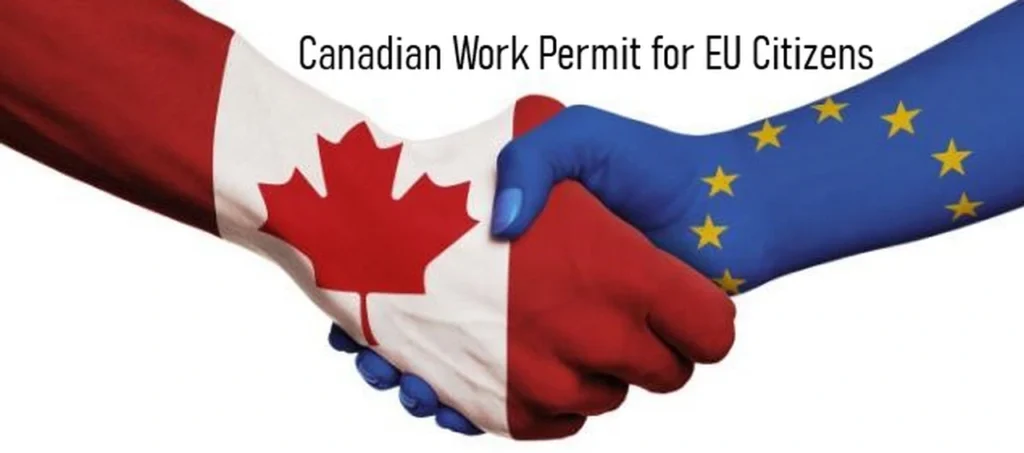Under the provisions of the Comprehensive Economic and Trade Agreement (CETA) (effective as of September 2017), it is easier for citizens of EU member states to obtain work permits in Canada.
Before CETA, a Canadian employer could obtain a work permit for foreign workers coming from EU only by completing a Labour Market Impact Assessment (LMIA), which essential had to prove that the skill-set needed by the employer could not be found in Canada. According to CETA, certain contractual service suppliers and independent professionals can work in Canada without the need to apply for a Labour Market Impact Assessment (LMIA).
Under the accord, applicants in either category may stay in Canada for a cumulative period of no more than 12 months in any 24-month period or for the duration of the contract, whichever is less.
Two general criteria must be met to qualify for a CETA work permit, and are related to applicant status and applicant qualifications:
- Applicant status criteria: applicants in either professional category must be:
- citizens of a European Union member state;
- engaged in the temporary supply of a service for a period not exceeding 12 months; and
- contracted to provide a service in accordance with the regulations set out in CETA.
Examples of the permitted professions are: Engineers, Computer Systems Analysts, Accountants, and Management Consultants, Financial and Insurance Managers (advisory and consulting only), Advertising Managers, and Market Research Managers.
- Applicant qualifications criteria: applicants in either professional category must possess:
- a university degree or a qualification demonstrating knowledge of an equivalent level; and
- professional qualifications if required to practice an activity pursuant to the laws or requirements in the province or territory where the service is supplied.
Some categories of engineering and scientific technologists are eligible to enter Canada as professionals without a university degree.
Criteria for contractual service suppliers
Contractual service supplier means an employee of an enterprise in the European Union (EU) who has a contract to supply a service to a Canadian consumer. The EU enterprise cannot have an establishment in Canada.
In addition to the general criteria listed above, as a contractual service supplier, the applicant must also:
- be engaged in the supply of a service on a temporary basis as an employee of an enterprise which has obtained a service contract;
- have been an employee of the EU-headquartered enterprise for at least one year prior to application;
- possess three years of professional experience in the sector of activity that is the subject of the contract at the date of submission; and
- not receive remuneration for the provision of services other than the remuneration paid by the enterprise employing the contractual service suppliers during their stay in Canada
Criteria for Independent Professionals
Independent professional means a self-employed professional who has a contract to supply a service to a Canadian consumer.
In addition to the general criteria listed above, as an Independent Professional, the applicant must also:
- be engaged in the supply of a service on a temporary basis as a self-employed person; and
- possess at least six years of professional experience in the sector of activity which is the subject of the contract as of the date of submission of an application for entry into Canada.
Business Visitors
Under CETA, there are two categories of business visitors: short-term business visitors and business visitors for investment purposes.
All CETA business visitors may seek entry to Canada for a number of regular visits related to a specific project. These visits may take place over a period of weeks or months.
The activities listed below apply to short-term business visitors from an EU member state entering Canada.
- Meetings and consultations
- Research and design
- Marketing research
- Training and seminars
- Trade fairs and exhibitions
- Sales
- Purchasing
- After-sales or after-lease service
- Commercial transactions
- Tourism personnel
- Translation and interpretation
Restrictions on Business Visitor Eligibility under CETA
Short-term business visitors cannot:
- Engage in selling a good or a service to the general public
- Receive remuneration directly or indirectly from a source in Canada
- Be engaged in the supply of a service, except as provided in Annex 10-D
Intra-Company Transfer
CETA sets conditions whereby people may be transferred to work in Canada within the same affiliated Canada company.
Under CETA, all intra-company transferees must:
- Have been employed by an enterprise of, or have been partners in an enterprise of, an EU member state for at least one year; and
- Be temporarily transferred to an enterprise (that may be a subsidiary, branch or head company of the enterprise) in Canada.
The applicant must belong to one of the following categories:
- Senior personnel and specialists
- Graduate trainees
In addition to the criteria outlined above, graduate trainee applicants must:
- Possess a university degree; and
- Be temporarily transferred to an enterprise in Canada for career development purposes or to obtain training in business techniques or methods
Investors
CETA provides provisions that allow eligible investors to stay in Canada for up to one year, with the possibility of extending their stay at the discretion of an officer.
The investor provisions of CETA apply to applicants who:
- Will establish, develop or administer the operation of an investment in a capacity that is supervisory or executive;
- Are the investor; and
- Are employed by an enterprise that has committed or in the process of committing a substantial amount of capital.
Learn More
Business Charity community Contracts COVID-19 divorce Estate Planning Family Law immigration Incorporation Not For Profit Postnup Power of Attorney Real Estate Registration separation agreement Sponsorship Startup Taxes Wills Wills & Estates Wills and Estates Work Permit


